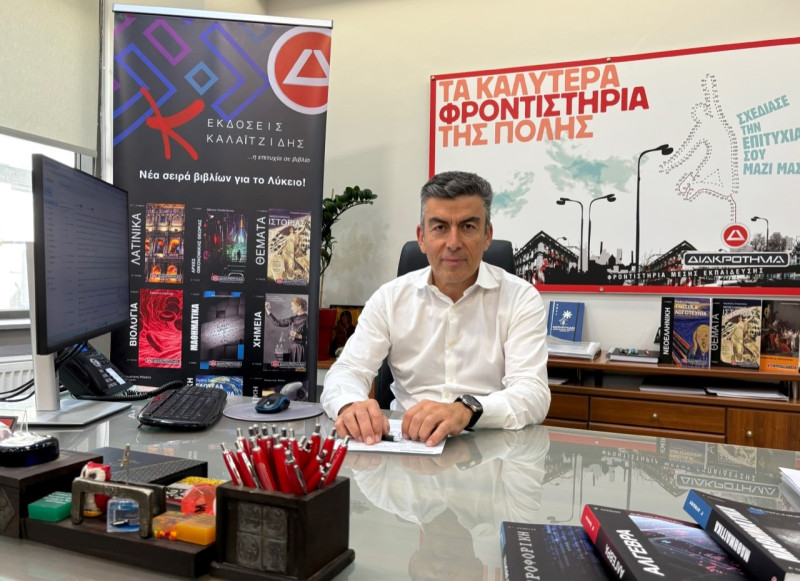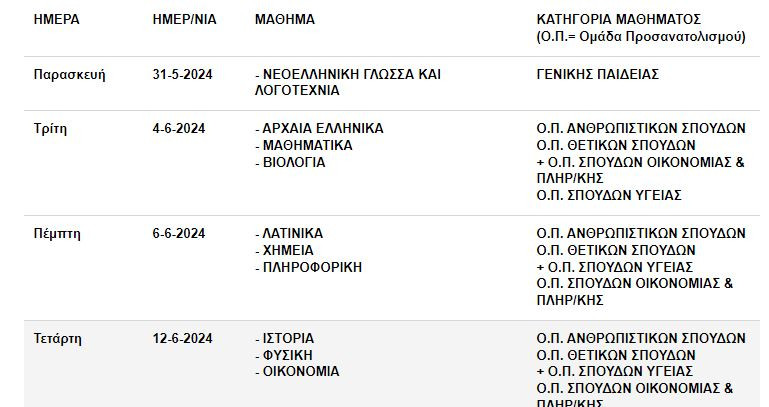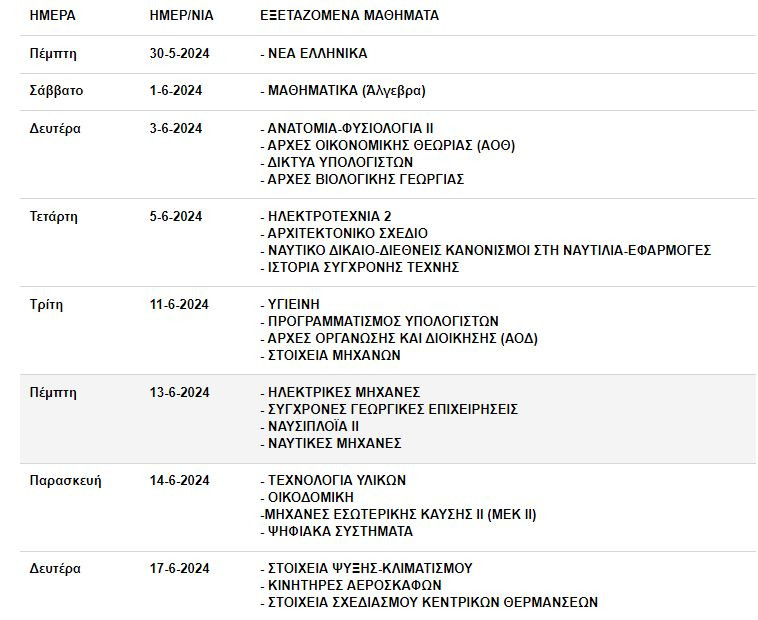It is true that during these exam days, students and parents are overwhelmed with feelings of anxiety and stress
By Marina Zioziou
We are in the final stretch until the start of the National Examinations of 2024with the students being “tested” -and their endurance- for their admission to the Higher Educational Institutions of the country.
According to the Ministry of Education, for daytime and evening GEL, the All-Hellenic Examinations begin on May 31with the students competing in Modern Greek Language and Literature, while they will “draw the curtain” on June 12 with the orientation, History, Physics and Economics exams.
As for the students of the day and evening EPAL exams, the exams will start one day earlier, on May 30with the course of New Greek and will end on June 17, with the exams in the courses Refrigeration-Air Conditioning, Aircraft Engines and Central Heating Design Elements.
It is true that during these exam days, students and parents are overwhelmed with feelings of anxiety and stress. For those who have given before, this experience is a familiar situation. For most students, however, the National Examinations are particularly stressful and even scary.
Positive thoughts are essential in this stressful time. The preparation for the All-Hellenic Trials is a demanding process, during which difficulties arise. The question is how we will manage them. This period will pass and through this experience you will be able to sculpt your character and gain resilience. A good exam result is the goal, but having a backup always helps.
With the help of the Mathematician and president of the “DIAKROTIMA” Group, Mr. Theodoris Kalaitzidis, these are the “12 secrets” that will help you achieve your goals and make your dreams come true. Good luck!
What to watch out for before the exams:
- We make a reading-repetition program, which we follow faithfully. We must spend at least three consecutive hours per subject, while it is good to study one or at most two subjects per day. However, it would be good not to try to read all the lessons in the same day.
- We follow the schedule of the Panhellenic Exams, that is, we sleep early, in order to rest our bodies, in order to get the best results.
- We eat healthy, juice and exercise gently so that we are in good physical, and therefore mental, condition to combat the stress that everyone has when taking exams.
- We are thinking positively. Our life does not begin and certainly does not end with the National Examinations, whatever the result we get. The goal is to get the best possible result, because even if we don’t get our 1st choice, the 2nd and 3rd schools are also a success.
“Life is not black or white, you must always remember that. There are intermediate situations and it is very important to achieve the best we can. After all, during the battle we only think about victory”reports on o Mr. Theodoros Kalaitzidis.
- We shouldn’t deal with rumors about “SOS issues” that someone predicted, that are long overdue, that our classmate saw in his sleep… coke. We get upset for no reason and they are almost never confirmed.
- On the night before the exam, we avoid excesses in the diet and never stay up late. On the day of the exams, we make sure to be ready early, so that we don’t get stressed if there is any delay in getting to the exam center.
What to watch out for during the exams:
- We have with us the essentials:
1. Identity card or passport
2. Exam card (card)
3. 3 pens (blue or black), pencil, eraser, sharpener
4. Geometric instruments (when needed)
5. Bottle or thermos with water or juice
6. Clock to manage the predicted time
- We read the 1st subject without haste and anxiety. There’s no point in rushing, we don’t gain anything by reading it 5-10 seconds faster, and we’re prone to mistakes. We solve it (never on the clipboard and copy it later, it is a pointless waste of time and energy) calmly and if necessary we use the clipboard for some action or some thought that we are not sure how it will end up. We successively repeat the same process for the rest of the subjects.
- We are not disappointed if a subject makes it difficult for us or we do not know it. Difficult topics are also difficult for others. We will try to write what we know so we can get as many points as we can. Even if we are not sure, we must claim as many points as possible.
- We must not deviate from the initial time plan we have set for each subject. We write what we can and move on to the next topic. It may be that when our writing is finished and we return to this subject, we will see things that we did not notice the first time. If we finish early, we don’t leave, but re-read the questions and answers we gave, so we can be sure of what we wrote.
- We are not in a hurry, we are not excited, we are not disappointed. All this can lead us to mistakes. When the exam is over, we calm down and try to get this lesson out of our minds. What happened, happened. It doesn’t change anything by searching what we wrote. Let’s not forget that we are comparing ourselves to the other candidates. Our goal now is the next lesson.
What we do after the exams:
- We complete our computerized form with the guidance and support of a specialized career guidance counselor.
“Always remember that exams are an important stage, but not the end of the effort”, points out Mr. Theodoros Kalaitzidis. And he adds: “Opportunities exist for everyone and are countless throughout your life’s journey. You must have faith, strength and the will to pursue them.”
The program of the Hellenic Day and Evening GEL Exams:
The program of the Hellenic Day and Evening EPAL Examinations for the year 2024:
Source: Skai
I have worked as a journalist for over 10 years, and my work has been featured on many different news websites. I am also an author, and my work has been published in several books. I specialize in opinion writing, and I often write about current events and controversial topics. I am a very well-rounded writer, and I have a lot of experience in different areas of journalism. I am a very hard worker, and I am always willing to put in the extra effort to get the job done.













